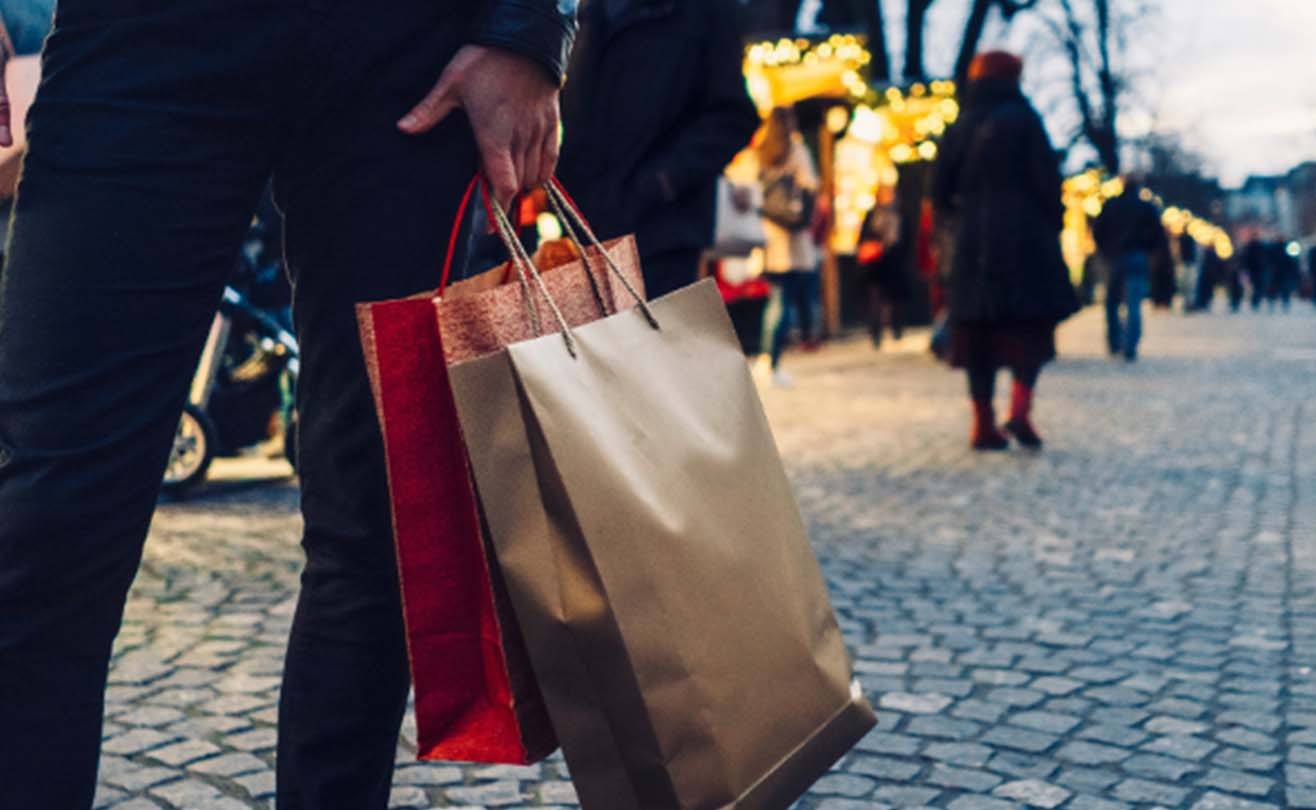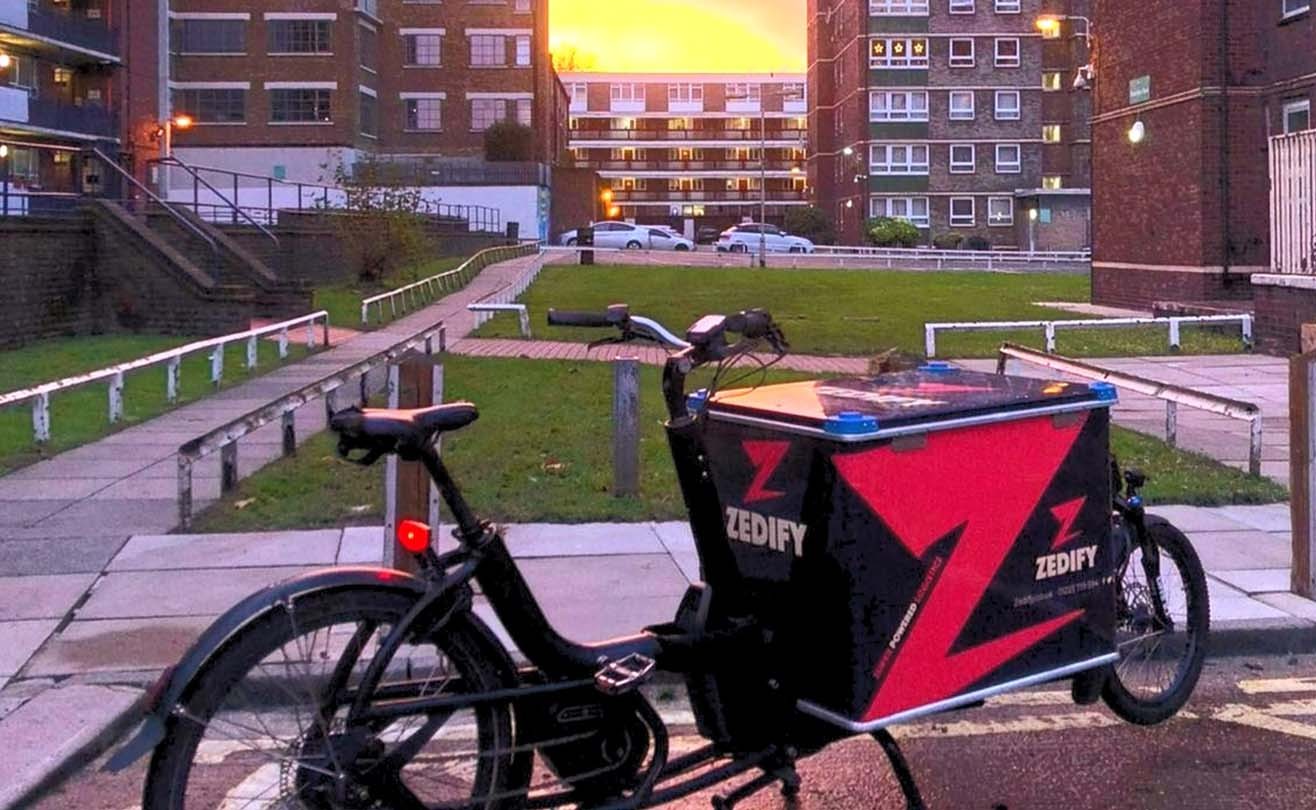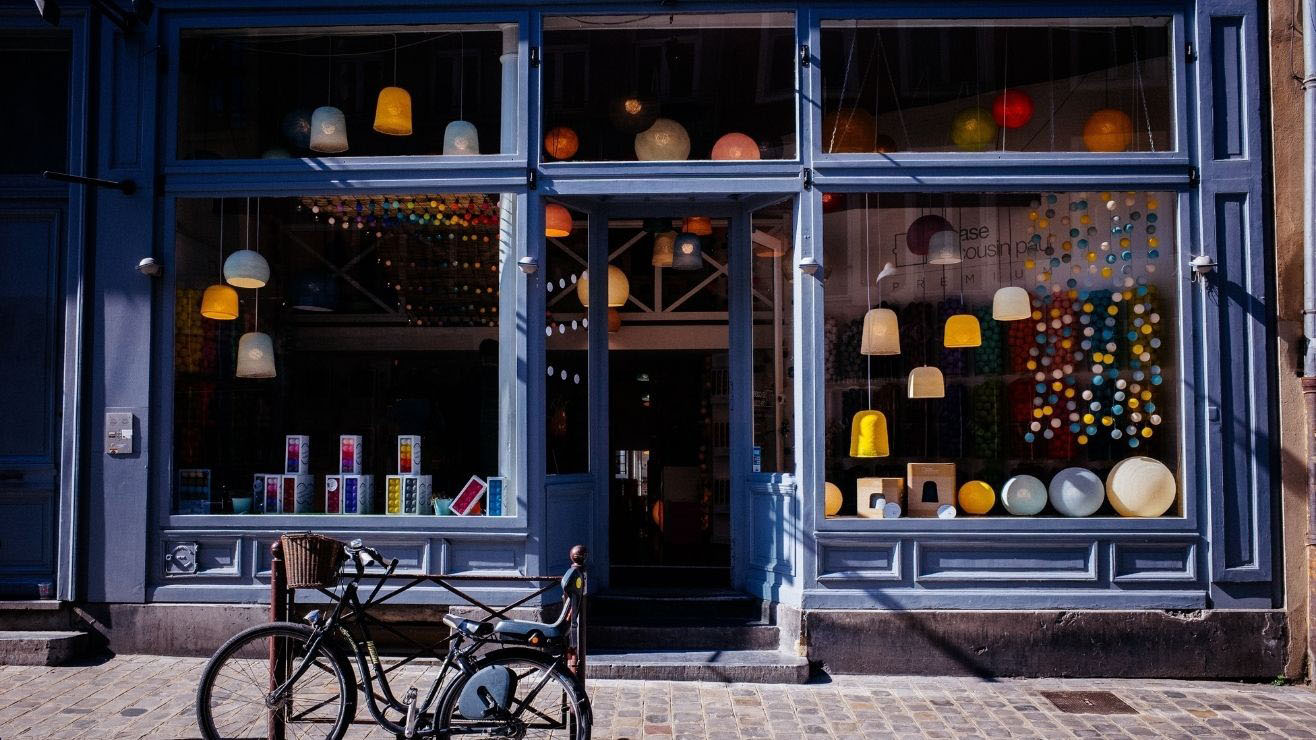
Thenew-lookgoldenquarterforindieretailers
 November 17th, 2021
November 17th, 2021 Harriet Hird
Harriet Hird 6 minute read
6 minute readHard times, innovative measures
As we approach the golden quarter and Christmas shopping period, retailers are under pressure to perform well. But this year many are looking beyond conventional promotions and offers.
Despite the huge challenges from the pandemic, and in the immediate context of the recent and fraught COP26 climate talks, this golden quarter brings a wave of well-needed innovations. There are new ways of doing business which focus on sustainability and allow retailers to build loyalty and develop their customer experiences as they enter the busiest season in retail.
The proportion spent online soared to 35.2% in January 2021, the highest on record; this compares with 29.6% in December 2020 and 19.5% reported in January 2020. With this clear trajectory for online shopping, retailers with the strongest foothold are placing an equal focus on their instore and online customer experience.
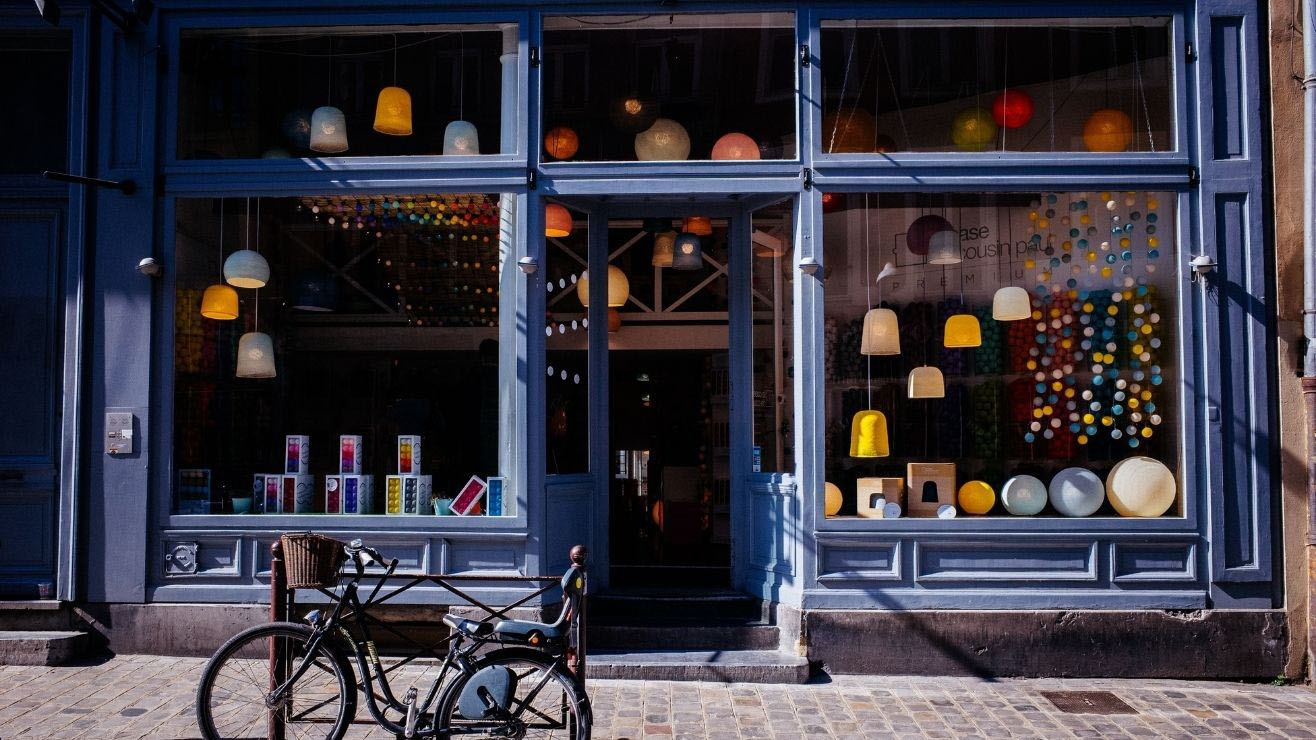
What’s driving a sustainable approach to retailing this Christmas?
Sustainable ecommerce has become a necessity for retailers who want to address the needs of a much more socially aware and eco-friendly consumer. From the nuts and bolts of planning the business model to the packaging of products and how those products are subsequently delivered – sustainability has moved up the list of priorities for both big and small retailers.
The prioritisation of a new more sustainable approach should go hand in hand with a refocus on the customer experience
During the height of COVID, the restrictions around in-person shopping resulted in more home deliveries. With this came a shift in consumer expectations around convenience and customer service in general. This is a shift that should not be ignored.
Sustainability in ecommerce can be addressed hand in hand with customer service, with an eye firmly on brand loyalty. Some retailers are set to address these challenges right now for the Christmas shopping period, but the impact of change in these areas will go far beyond the end of this year.
Thinking locally, acting personally
Smart local businesses will be looking beyond discounting towards loyalty, buyer experience and creating niche offerings to address the needs of the local community. The focus will be on how their customers can best experience their brands and retail outlets. This means more than just being transparent about the workings of the business, rather, it will mean actively promoting the ethics that underpin what they do – from how items are sourced packaged and delivered to how much of the revenue is put to charitable donations and activities.
1/ Does the Black Friday concept make you wince? This year, independent retailers are appealing to shoppers to sack off this unsustainable model with alternatives such as Holly Tucker’s Colour Friday on 26th November. This campaign asks shoppers to switch some of their normal Christmas spend to a local independent business. If all of us switched one purchase locally, there’d be an extra £2.7 billion going to our local high streets, helping them survive and thrive. With a fabulous campaign support pack available for a limited number of independent high street retailers- it looks like a fabulous time to get involved.
Small Business Saturday on the 4th December is another national campaign supporting local independent businesses by encouraging shoppers to visit their local town centres and high streets. With a listing directory and free resources, indie retailers can help connect with their customers by reminding them of the good they can bring about by shopping locally.
2/ Work for Good is an organisation that works with small businesses to break down the barriers they might encounter in supporting the charities they care about. One such small business is Hatchling Makes, a UK-based small business creating colourful animal and nature illustrations.
The Founder, Tash, is a lifelong animal lover – fundraising for wildlife charities is at the heart of what she does. She says; ‘I believe it’s vital to be doing all we can to save our endangered species. Work for Good makes it so easy, setting up and paying a donation is a breeze and my customers love that they’re helping to save animals with every purchase.’
Another small business creating ethical change through sales is GOOD KOFFEE – producers of the UK’s first Coffee Kombucha and Coffee Tonics of their kind.
Founder Chris Crocker says good is not just in the name, it’s very much part of what they do; ‘Our mission at GOOD is to create adventurous, natural and great tasting drinks. Bringing a whole new perspective to coffee and social drinking. Our wish is to encourage connection through coffee and live by our name to do GOOD too.’
3/ Independent retailers and newer DTC brands like sustainable beauty brand Circla are leading the way on zero emission logistics and brand experience at the doorstep. City dwellers are getting pretty used to cargo bike deliveries, with huge numbers of businesses choosing to shift their goods by bike whether that’s through a delivery company like Zedify or maybe even trying out their own bikes through schemes like Bikes for Business. So, will big retail be next? 2022 is the year we want to see our High Street brand deliveries arriving at the doorstep by cargo bike.
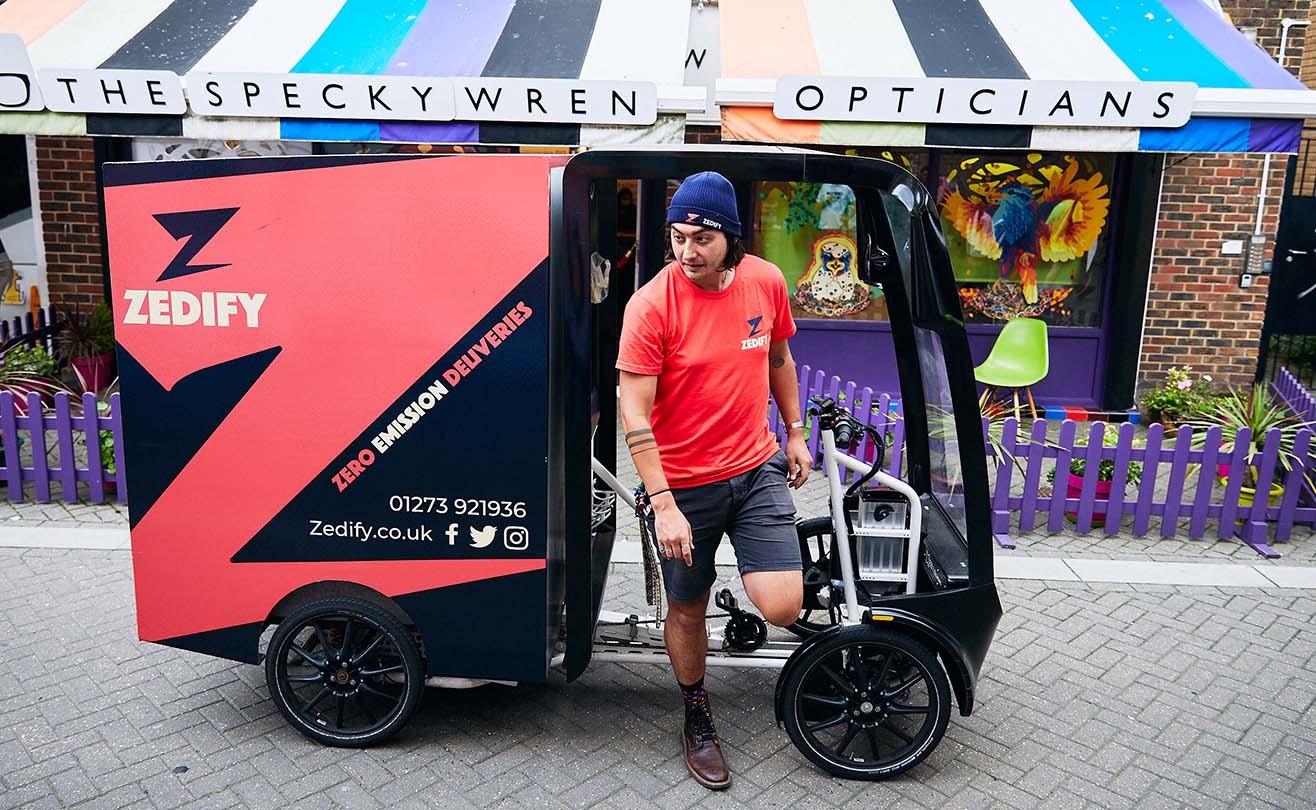
Aligning instore and online
For this golden quarter, many who have seen the value in timely and targeted campaign content, data-driven, digital upgrades and a coordinated multichannel approach should find these elements giving them the edge over those who have been slower to adapt. When you throw in Brexit supply chain issues – many in the hospitality and retail industries have seen shortages in staffing and an increase in charges for goods and services – agility and the ability to remove barriers to purchase are key. Having a hybrid approach and minimising ‘friction’ across digital and in-person channels will have a longer-term impact and create a more solid foundation against future disruption.
How has the pandemic shaped the approach of independent retailers?
For smaller independent retailers, some of the innovation and community engagement that kept businesses functioning during Covid could be utilised as things progress to a new kind of normal. Here are just a few:
1/Understand and cater to the needs of the local community
This type of knowledge is key – it can make a huge difference to both sales and to ensuring long-term brand loyalty.
2/ Utilise social platforms – particularly local online community groups
Local community groups found on social media platforms like Facebook can offer a wealth of information on local trends and news. They can also be a great way to engage with the local community.
3/ Creating partnerships with other local businesses
These partnerships can lead to a number of benefits including knowledge sharing around customer wants and needs and of course, the sharing of resources such as storage space for stock and delivery management.
4/ Create systems to complement the instore shopping experience
Again, these systems should be based on knowledge of the local community. Innovations like offering click and collect and extending the instore experience right to the front door with quick, easy and sustainable deliveries.
To find out more about how Zedify can support your local business or retail and ecommerce brand, get in touch with our team today.
This article is co-authored by lifestyle journalist Kiesha Meikle.


